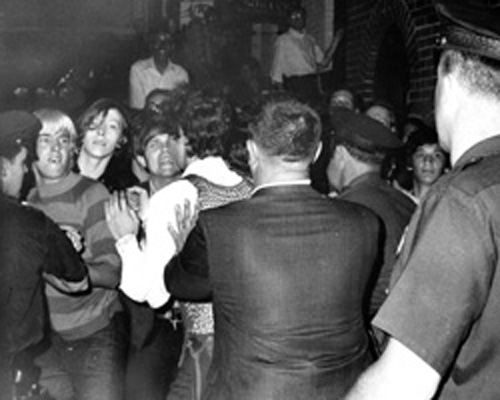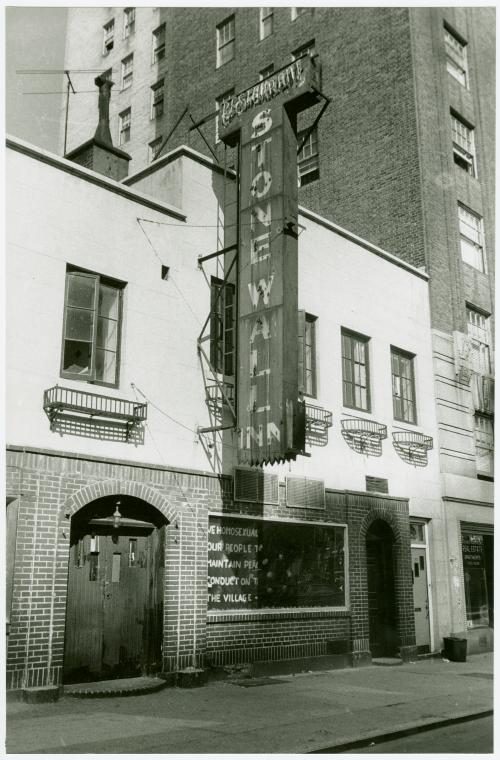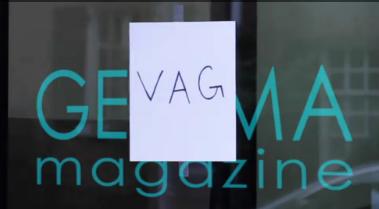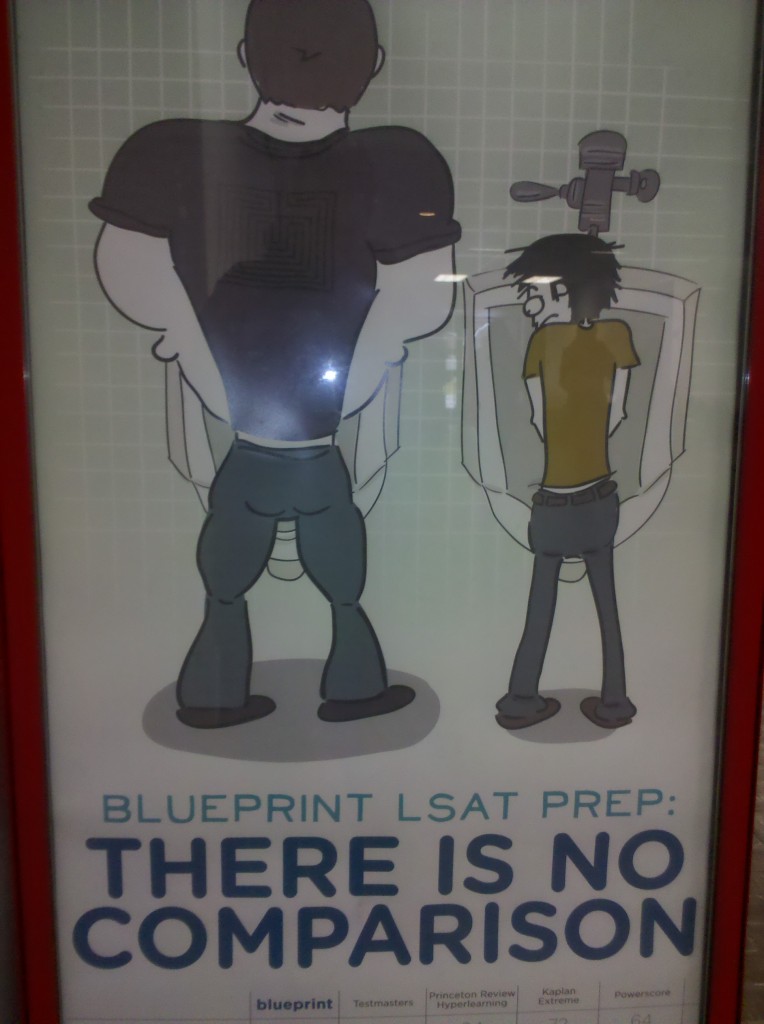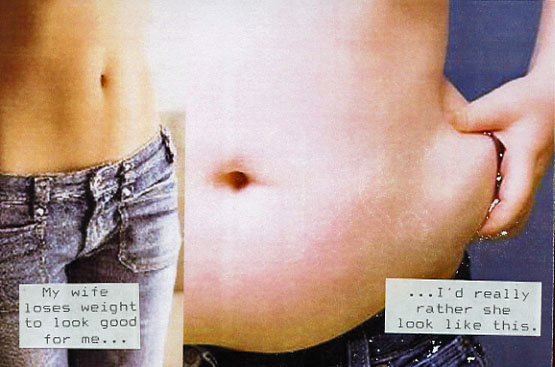The Stonewall Inn is a bar in Greenwich Village in New York. In the ’60s the bar was frequented by, among others, gay, lesbian, and transgender locals. On June 28, 1969, in response to frequent harassment by police, the patrons rioted. The description on Wikipedia, I must admit, is worth the read. Suffice to say that the police were roundly trounced. The riot is often cited as the birth of the LGBT rights movement.
This is purported to be the only photograph of the riot:
And this is a picture of the Inn, three months later, with a sign in the window that reads:
We homosexuals plead with our people to please help maintain peaceful and quiet conduct on the streets of the Village.
Images borrowed from Wikipedia.
Lisa Wade, PhD is an Associate Professor at Tulane University. She is the author of American Hookup, a book about college sexual culture; a textbook about gender; and a forthcoming introductory text: Terrible Magnificent Sociology. You can follow her on Twitter and Instagram.

